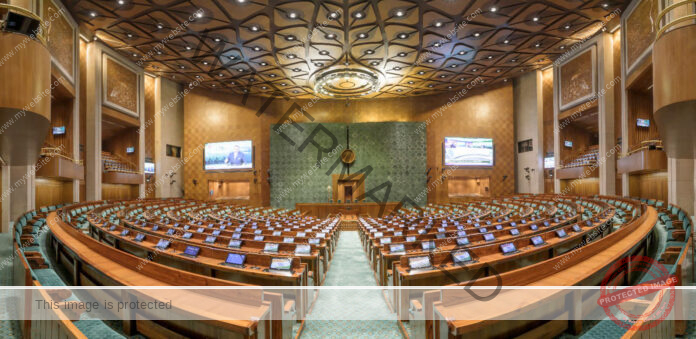A not to be challenged popularity, frail and demoralized opposition besides favourable local factors supporting a win have resulted in as many as many as 30 unopposed candidates reach the Parliament in past 18 Lok Sabha elections since the first poll in 1951. Almost all the wins had a similar script.
The latest being Mukesh Dalal, the Bharatiya Janata Party (BJP) Lok Sabha candidate from Gujarat’s Surat was declared elected unopposed on April 22, 2024, the last date for withdrawal of candidature, after nominations of two candidates of Congress were cancelled while others withdrew their stake. The candidature of Congress candidate Nilesh Kumbhani was rejected a day earlier after the district returning officer prima facie found discrepancies in the signature of the proposers.
Dalal is the first candidate in the last 12 years to have won a Lok Sabha election unopposed. He is also perhaps the first candidate from the BJP to have ever won a parliamentary poll unopposed.
Before Dalal’s unopposed entry to the 18th Lok Sabha, there have been nearly 30 others who have won since 1951, sans an electoral battle including by-polls.
In 1989, amid rising insurgency in Kashmir Valley, the Lok Sabha elections for its three seats saw one of the candidates get elected unopposed.
Likewise, Samajwadi Party’s Dimple Yadav had won the Kannauj Lok Sabha bypoll in 2012 unopposed after the seat was vacated by her husband Akhilesh Yadav as he became chief minister of Uttar Pradesh.
Prominent amongst other leaders who had repeated the feat of winning parliamentary polls unopposed include Farooq Abdullah, Hare Krishna Mahtab, SC Jamir, PM Syeed, YB Chavan, TT Krishnamachari, Narendra Modi, etc.
Of the candidates who entered the Lok Sabha without a contest, the maximum have been from the Congress. Sikkim and Srinagar constituencies have witnessed such unopposed elections twice.
While most candidates had won polls unopposed in general or regular elections, there have been at least nine, including Dimple Yadav, who won bypolls uncontested.
In Independent India’s first election in 1951, 10 candidates were elected unopposed while in 1957 election, the count of such MPs swelled to 11.Further, in the elections in 1962 and 1967, three and five candidates, respectively, were elected without any contest while one candidate in 1971, two in 1977 besides one in 1984 won without votes being cast.




